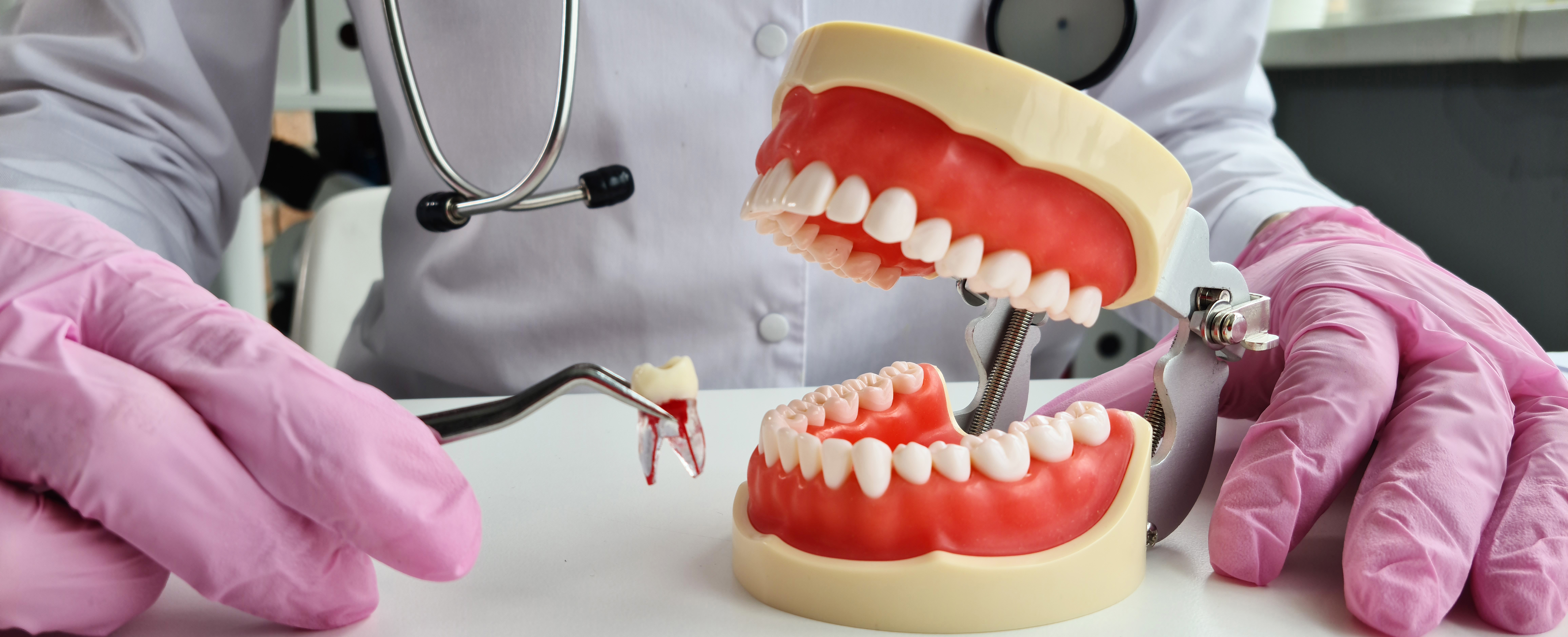Date
Removing a permanent tooth is often considered a last resort, but sometimes, a tooth extraction becomes necessary to ensure your overall oral health. Whether it's due to severe decay, infection, or other dental issues, understanding the reasons and the process can help ease any anxiety. In this blog post, we will discuss why you might need a tooth extracted and what to expect during and after the procedure.
Why You Might Need a Tooth Extraction
There are several reasons why your dentist might recommend a tooth extraction:
- Severe Decay or Damage: When a tooth is severely decayed or damaged beyond repair, extraction may be the best option to prevent the spread of infection and alleviate pain.
- Infection: If a tooth infection reaches the pulp (the center of the tooth containing nerves and blood vessels), it can be treated with root canal therapy. However, if the infection is too severe, extraction might be necessary to prevent it from spreading.
- Crowded Mouth: Sometimes, teeth need to be extracted to prepare the mouth for orthodontic treatment. Removing a tooth can help create space for the remaining teeth to align properly.
- Periodontal Disease: Advanced gum disease can cause teeth to become loose. In such cases, extraction may be required to maintain oral health and prevent further complications.
- Impacted Wisdom Teeth: Wisdom teeth, or third molars, often become impacted (stuck in the jaw) and can cause pain, infection, or crowding. Extracting these teeth is a common procedure to avoid these issues.
What to Expect During the Procedure
Understanding what happens during a tooth extraction can help you feel more prepared and at ease:
- Consultation: Your dentist will examine your mouth and take X-rays to assess the condition of the tooth and surrounding bone. This helps determine the best approach for the extraction.
- Anesthesia: To ensure a comfortable experience, your dentist will administer local anesthesia to numb the area around the tooth. In some cases, sedation or general anesthesia may be used, especially for more complex extractions.
- Extraction Process:
- Simple Extraction: If the tooth is visible and easily accessible, your dentist will use an elevator tool to loosen the tooth and forceps to remove it.
- Surgical Extraction: For teeth that are not easily accessible, such as impacted wisdom teeth, a surgical extraction may be necessary. This involves making an incision in the gum and sometimes removing bone around the tooth before extraction.
- Post-Extraction Care: After the tooth is removed, your dentist will place gauze over the extraction site to control bleeding and help form a blood clot. In some cases, stitches may be needed to close the gum edges.
What to Expect After the Procedure
Recovery from a tooth extraction typically takes a few days to a week. Here are some tips to ensure a smooth healing process:
- Manage Pain and Swelling: Over-the-counter pain relievers and ice packs can help alleviate discomfort and reduce swelling. Your dentist may also prescribe medication for pain management.
- Follow Post-Operative Instructions: Your dentist will provide specific instructions, such as avoiding vigorous rinsing or spitting, which could dislodge the blood clot and delay healing.
- Soft Diet: Stick to soft foods like yogurt, applesauce, and mashed potatoes for the first few days. Avoid hard, crunchy, or sticky foods that could irritate the extraction site.
- Maintain Oral Hygiene: Keep your mouth clean by gently brushing your teeth and rinsing with a saltwater solution. Be careful to avoid the extraction site when brushing.
- Watch for Complications: It's normal to experience some bleeding, swelling, and discomfort after an extraction. However, if you notice excessive bleeding, severe pain, or signs of infection (such as fever or pus), contact your dentist immediately.
While a tooth extraction might sound intimidating, understanding the reasons behind it and knowing what to expect can help you feel more comfortable and confident. Remember, your dentist is there to ensure the best possible outcome for your oral health. If you have any concerns or questions about the procedure, don't hesistate to reach out to our dental practice. We're here to support you every step of the way.


 703-734-2750
703-734-2750








